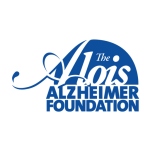For married couples, the diagnosis of Alzheimer’s disease often occurs after the couple has been married for decades. With such a history of shared experiences, spouses have long since fallen into a predictable routine. When the symptoms of Alzheimer’s begin, things such as memory loss, disoriented thinking and personality changes can affect the marital relationship.
Despite the fact that spouses provide the majority of care for persons with Alzheimer’s Disease, and that they share the common experience of being married to the person for whom they are caring, it would be wrong to assume that all spousal caregivers’ perceptions are the same. While there are many tasks similar to caregivers – organizing their loved one’s day, providing companionship, assisting with daily activities, perhaps even helping with dressing, bathing and feeding – the approach and the experience for the caregiving spouse can be as varied as the spouse providing the care.
Research studies on the experience of marriage for spouses of Alzheimer’s patients show that some of the burdens most spouses encounter include:
1. guilt for wanting an intimate relationship or for wanting their burden of caregiving to end;
2. frustration with the inability to relate to their loved one due to his/her mental capacity;
3. resentment of having to suppress their own needs or of the marriage vow which promised to care ‘in sickness and in health’;
4. embarrassment or confusion over changes in the spouse’s behavior such as their ill spouse making sexual advances toward the caregiving spouse when they no longer know his or her name;
5. fear of acting selfishly for wanting to attend to one’s own needs and perhaps most common,
6. loneliness and depression,
However, approximately one third of spouses experience these emotions to a far lesser degree, if at all. Things such as one’s overall happiness with their marriage prior to the onset of Alzheimer’s, feeling a sense of commitment to the person as compared to the wedding vows, and having a generally positive attitude and sense of resiliency contribute greatly to the caregiver’s experience and how they continue to find meaning and a sense of peace in such a challenging situation.
If you are one of the minority of caregivers who are not only surviving, but thriving in your caregiving role, bless you! May your outlook be an inspiration to others. If you are a spouse struggling with caregiving, perhaps a good place to start is to simply be honest about your feelings. You don’t have to share them with others; but being honest with yourself about what you can and cannot do may give you a sense of freedom from having to live up to what society presumes a marital relationship should be. Of course, we all want happiness, and your feelings about being a caregiver are neither good nor bad, they just are. Understand them to be your emotional guidance system, and let them help you in directing how you provide care for your husband or wife. When ready, find others who understand and can partner with you on your journey. Naysayers and critics have no place when it comes to honoring what you know to be true for you and your loved one. This is not to say that those who are finding hardship as a caregiver should throw in the towel. Rather, it is to encourage you to know that in starting at a place of honesty, surprising solutions to perceived problems can arise.
Providing care for someone with Alzheimer’s or another form of dementia is not about logic, following a standard protocol, or pleasing the masses; it’s about individualized care, trusting your gut and both providing assurance and experiencing assurance. When we honor our feelings and act out of kindness and love, there are no wrong choices.
Elizabeth Shulman, D.Min., is the author of Sanctuary in the Midst of Alzheimer’s: A Ministry for Husbands and Wives Caring for a Spouse with Dementia. To contact her, or to find out more about her work, visit: http://www.elizabethshulman.com.
Resources:
Rose A. Beeson, “Loneliness and Depression in Spousal Caregivers of Those with Alzheimer’s Disease Versus Non-Caregiving Spouses,” Archives of Psychiatric Nursing 17, no.3 (2003): 140.
Bonorandi, Andrea; Williams, Christine., “Voices of Couples Affected by Alzheimer’s Disease,” FAU Undergraduate Research Journal, [S.l.], v. 3, n. 1, p. 57, March 2014.
Rich O’Boyle, “Intimacy, Marriage and Alzheimer’s Disease,” [on-line article] Elder Care Online; available from http://www.healingwell.com/library/alzheimers/oboyle2.asp; accessed 19 November 2005.
Joling K, J, Windle G, Dröes R, -M, Meiland F, van Hout H, P, J, MacNeil Vroomen J, van de Ven P, M, Moniz-Cook E, Woods B, “Factors of Resilience in Informal Caregivers of People with Dementia from Integrative International Data Analysis,” Dementia and Geriatric Cognitive Disorders. 2016;42:198-214.
Watson, B., Dawn A.L., Savundranayagam, M.Y., & Orange, J.B., “Links Among Communication, Dementia and Caregiver Burden,” Canadian Journal of Speech-Language Pathology and Audiolog, (4), 276-283.





